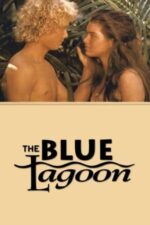Beyond Labels: Exploring Sexual Identity on Film
Okay, let's talk about something really important – sexual identity, and how cinema has grappled with it over the years. It’s a topic that’s evolved dramatically both in storytelling and societal understanding, and watching films across different eras offers such a fascinating lens into those shifts. It’s not just about “coming out” stories (though those are vital), but about the internal journeys, the societal pressures, and the sheer complexity of figuring out who you are and who you love.
Think about it: for decades, representation was… well, let's be honest, often non-existent or deeply problematic. Then came films that started to chip away at those barriers, sometimes clumsily but always with a degree of bravery. And now? We’re seeing a wider range of narratives, more nuanced characters, and a greater willingness to explore the spectrum of human experience.
The film Happy Birthday, Gemini is a great example of this evolution. It's not explicitly about sexual identity in a declarative way, but it beautifully illustrates the confusion and self-discovery that can accompany unexpected feelings. That moment when the protagonist realizes his affections aren’t directed where he thought they were? That’s a universal feeling, regardless of who you’re attracted to. It speaks to the vulnerability inherent in romantic missteps – something we've all experienced!
Then you have films like Zerophilia, which tackles identity with a playful, almost surreal approach. The concept itself—the ability to change sex at will—is obviously fantastical, but it serves as a brilliant metaphor for the fluidity of gender and sexuality. It forces us to ask: what truly defines attraction? Is it about physical form, or something deeper? It’s a bit like Being John Malkovich, in that it uses absurdity to explore profound questions about identity.
Screwed, with its quiet exploration of connection amidst the Finnish countryside, reminds us that self-discovery isn't always loud and dramatic. Sometimes, it's found in shared moments and unspoken understandings. And then there’s Matt Shepard Is a Friend of Mine. This film is essential viewing – not just for understanding the tragic reality of hate crimes, but also for appreciating the courage of those who lived openly and honestly in a world that wasn’t always accepting. It's a stark reminder of how far we've come, and how much further we still need to go.
Finally, Cockles and Muscles and Ode to Billy Joe, while seemingly different, both highlight the importance of family acceptance – or lack thereof – in shaping our understanding of ourselves. The pressure to conform, especially within close-knit communities, can be immense.
Ultimately, films about sexual identity aren't just about labels; they’re about humanity. They’re about love, loss, belonging, and the ongoing quest for self-acceptance. And that’s a story worth telling – and watching – again and again. What film has resonated with you most in exploring this theme? I'd love to hear your thoughts!






































